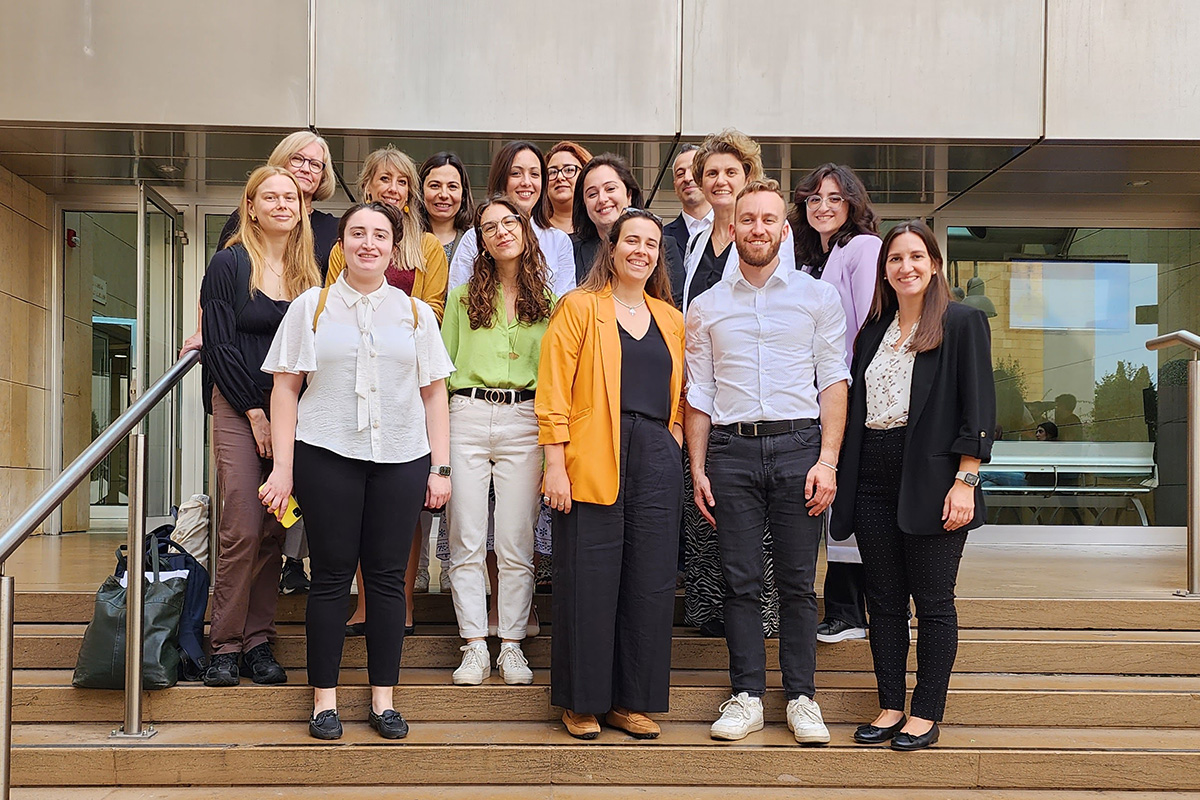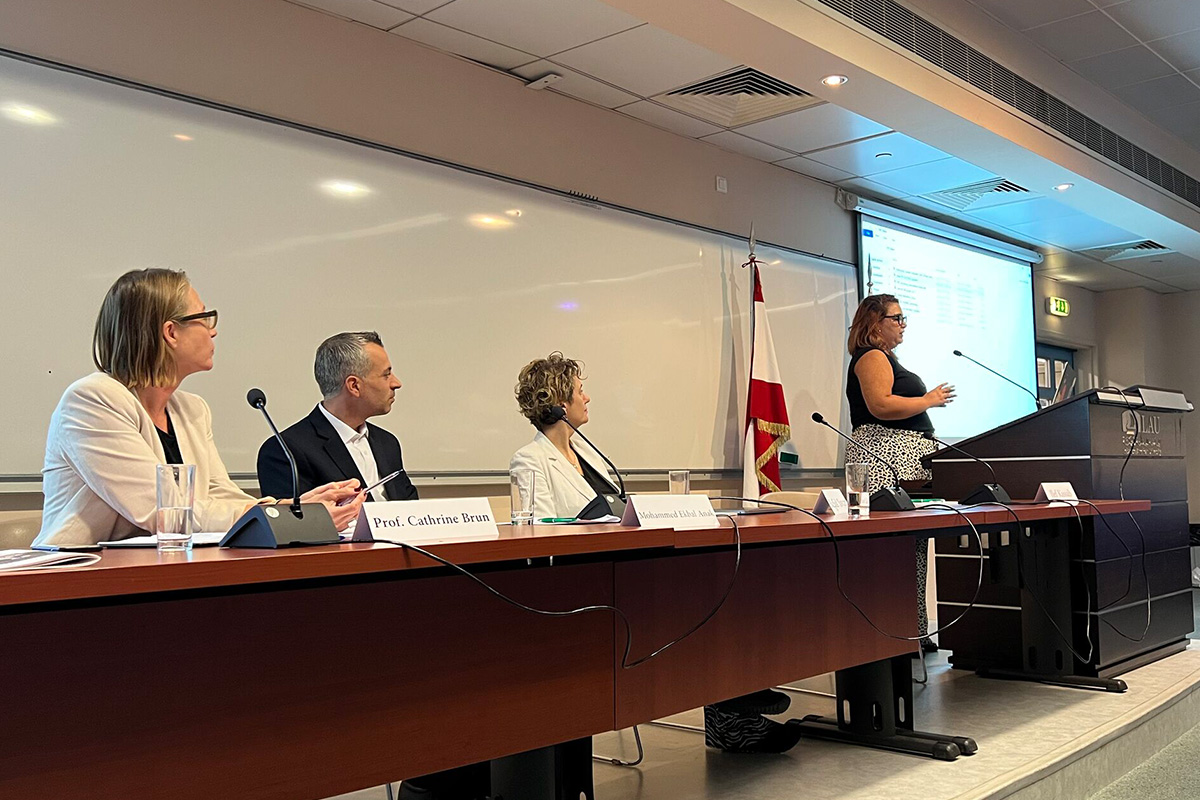LAU Navigates the Terrain of Climate-Induced Displacement
In collaboration with Rice University’s Baker Institute, the Institute for Migration Studies provided a medium for debate and proposed solutions to the challenges of migration in the MENA region.
Among the effects of climate change on the environment, it has become increasingly evident that the interplay between shifting climatic conditions and resource scarcity is shaping the patterns of migration.
In 2021, the World Bank’s Groundswell report revealed that climate change is one of the catalysts for migration and is projected to force more than 216 million individuals across six global regions to relocate within their national borders by the year 2050.
According to the report, the gradual onset of socially and environmentally damaging impacts left in the wake of climate change, among which are water scarcity, diminished crop productivity and rising sea levels, paint a daunting picture of displacement in the coming decades.
The urgency to address the intersection of climate, development, human rights and migration policy has never been more pressing given that a substantial proportion of individuals displaced by environmental changes are often compelled to cross international borders in search of safety and stability.
In an effort to address one of the gravest challenges of our time, the Institute for Migration Studies (IMS) at LAU partnered with Rice University’s Baker Institute to host a two-day workshop titled Climate-Induced Displacement in the Middle East and North Africa.
On October 9 and 10, the workshop dissected the multifaceted relationship between climate change and displacement, tackling topics on migratory patterns and the long-term effects climate-driven displacement has on the globe and its population.
The speakers also assessed host countries’ observance of the UNHCR’s 1951 Refugee Convention, an international treaty adopted in Geneva in July 1951 that sets out the legal definition of a refugee, enumerates their rights and privileges and outlines the legal duties and obligations of countries toward individuals who meet the refugee criteria.
IMS – an interdisciplinary, policy-oriented research institute – functions as a valuable resource hub for graduate students, researchers, policy analysts, humanitarian professionals and scholars with a vested interest in the study of migration and its implications in Lebanon and the MENA Region.
By inviting proposals for policy briefs and presenting them at the workshop, the institute aimed to encourage and facilitate collaboration among researchers and practitioners in the Middle East and North Africa who are actively engaged in the study and management of climate-induced displacement.
In panels featuring Professor in International Migration Law at the Faculty of Law at the University of Oslo Maja Janmyr, Deputy Director of Research at the Centre for Lebanese Studies Cathrine Brun and Title IX Director Jennifer Skulte-Ouaiss, the participants discussed how the MENA region is a hotspot for such a phenomenon given that it is characterized by an overlapping dynamic between climate change and conflict.
Not only is the MENA region extremely vulnerable to climate change, they noted, but also to social, economic and political factors that, together with climate change, could increase the probability of migration under duress, creating growing challenges for human development and planning.
“Today’s workshop is a chance to further that discussion and find points of intersection and divergences,” said IMS Director and Assistant Professor of Migration Studies Jasmin Lilian Diab. “We aim to produce a publication series that will expose to other researchers, policymakers and the general public the many ways that climate change will impact migration and refuge in the region.”
The first panel included discussions on the issues and constraints associated with the 1951 Refugee Convention when addressing this crisis, such as the absence of an inherent right for an asylum seeker to enter another nation, a lack of a precise definition of the term “persecution,” which is a fundamental component of the refugee definition and the absence of a more comprehensive alignment between the refugee definition and other human rights.
The panels that followed expounded on country-specific experiences and internal displacement as a human rights concern in the context of climate-induced predicaments, in addition to how proactive global action and far-sighted development planning could potentially reduce the number of climate migrants by tens of millions, thus addressing emerging climate change threats.
Given IMS’ core areas of focus between research, teaching, collaboration and knowledge dissemination, the panelists agreed that everyone has a role to play in the global dialogue about how to better manage and prepare for climate change and its effects. This should be done in the hopes of establishing a vital resource for policymakers, humanitarian organizations and other stakeholders advocating for evidence-based actions.

